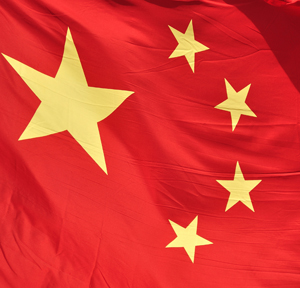Investment Strategies
INVESTMENT VIEW: Julius Baer Seeks To Capture Changing Chinese Consumer Habits

Changing patterns of Chinese consumer spending will benefit developments such as shopping malls in areas such as Hong Kong, Julius Baer said in a regular Asia Highlights report on trends in the region.
Changing patterns of Chinese consumer spending will benefit developments such as shopping malls in areas such as Hong Kong, Julius Baer said in a regular Asia Highlights report on trends in the region.
The Swiss-headquartered bank, which likes to call its second “home market”, said that in the past, Chinese consumers visiting Hong Kong for a day treated the place as somewhere to purchase luxury goods. This is changing as Hong Kong is increasingly a place to buy mass-market items. Landlords will look to develop outside the prime districts in the medium term to capture same-day demand. Businesses such as Sun Hung Kai Properties and Link REIT should benefit from this trend, Julius Baer said.
Turning to a different sector, logistics, the sector is being driven by forces such as the rising cost of doing business on the coastal areas and a move to a more service-orientated economy. Logistics must expand as the centre of economic gravity in the country moves Westward, it said. The success of e-commerce is also likely to boost demand for logistics, it said. The bank pointed out expansion from firms such as Tencent Holdings and Alibaba Group; it also reckons the Chinese logistics market will see mergers and acquisitions, which should attract investors.
An area of “explosive” growth potential, Julius Baer said, is tourism. China was the world’s largest out-bound market in 2012, with an estimated 83 million trips made by Chinese citizens, according to official data. “We believe it is on the cusp of explosive growth, driven by rising disposable income, increased annual leave, relaxed travel restrictions, a stronger [currency] and more international travel tastes,” the bank said. It predicts the number of outbound trips to rise by an annual rate of 15 per cent, surpassing 150 million trips by 2017.
Such tourists are heading to Hong Kong and Macau – the two most popular destinations – while there is strong interest in countries such as Thailand, South Korea, Taiwan, Japan, the US and Singapore.
The ascent of a Chinese middle class has for some time been associated with a boom in sales of luxury goods out of some countries – such as France and Switzerland (garments and watches, respectively). Brands such as LVMH and Richemont both have “buy” recommendations” from Julius Baer; the trend of luxury spending should also benefit sectors such as hotels, the bank said. Another area is “health tourism”: Chinese travellers now account for about 20 per cent of inbound medical tourists to Korea, seeking treatments such as plastic surgery.
On broader economic points, the bank noted that markets have quickly hit those countries must vulnerable to a slowing in the pace of Chinese growth, notably commodity/resource-rich Australia. Hence some weakness in the exchange rate of the Australian dollar, the bank said; on the other hand, New Zealand’s strong domestic economy was positive for the New Zealand dollar. Julius Baer expects the Japanese yen to remain weak, given how the government remains determined to press ahead with its quantitative easing programme.
In the fixed income space, Julius Baer expects the asset class as a whole to deliver low, but positive returns; an improving US economy is supportive for risky assets, such as high-yield debt. Julius Baer said that as far as Asian high-yield debt is concerned, it remains overweight, as default rates are low (1.2 per cent in Asia).
